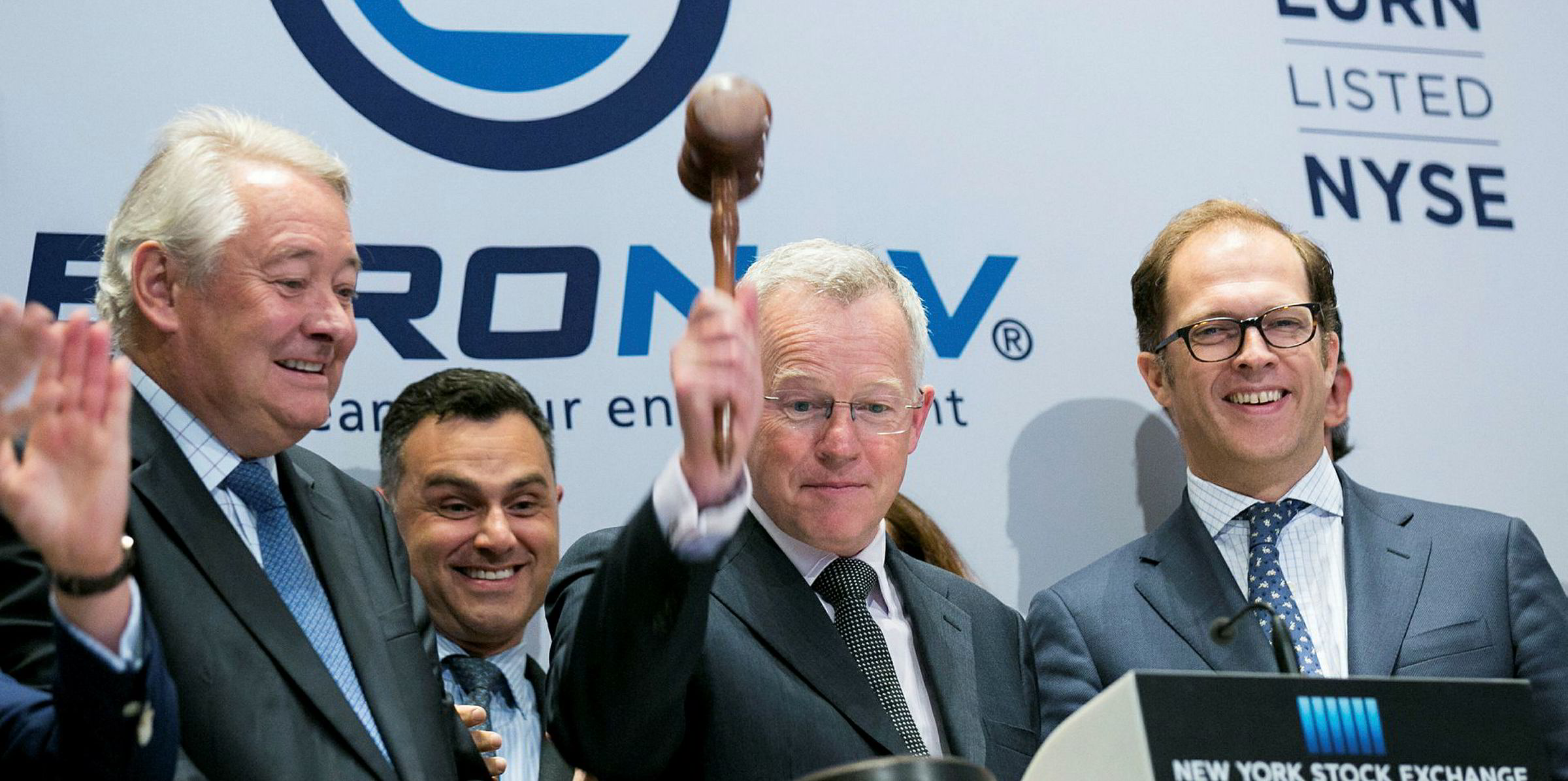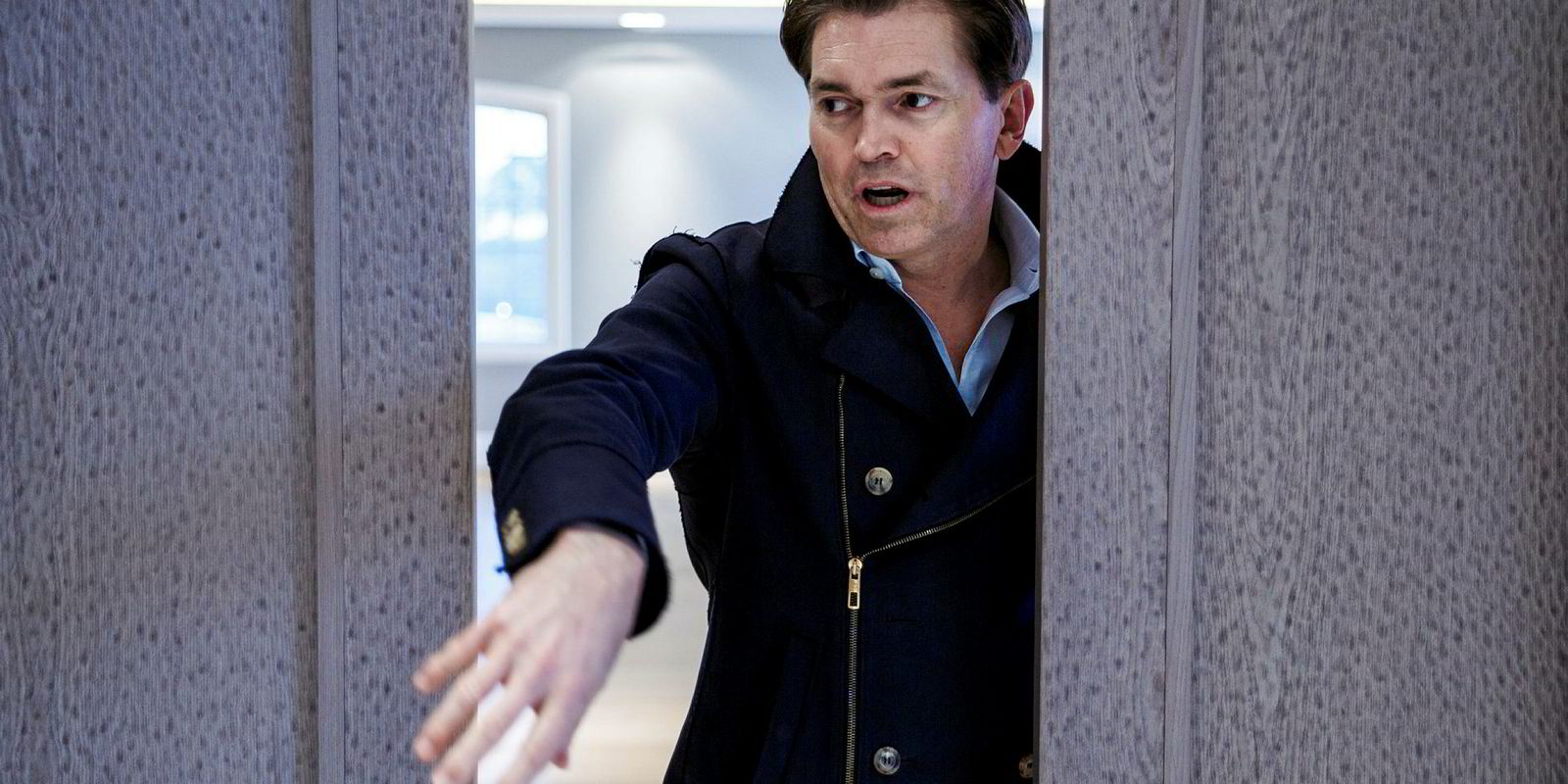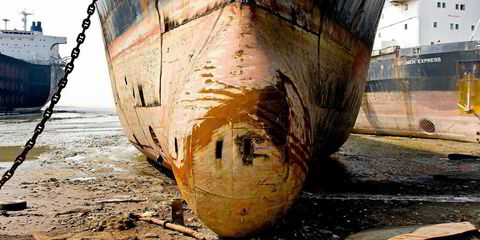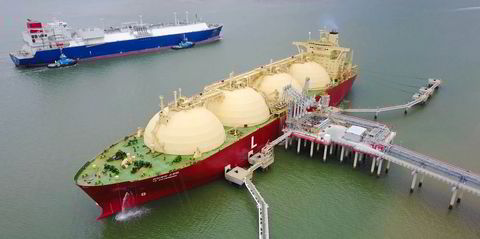Paddy Rodgers has continued his crusade against scrubbers, criticising promoters of the technology for failing to see the big picture and pointing out how Euronav has profited from not following the herd in the past.
Having taken the technology to task in its quarterly report and a subsequent interview with Bloomberg TV, the Euronav chief executive further discussed his “lonely battle” against conventional market wisdom during a quarterly conference call.
Rodgers told investors and analysts a number of elements were being missed in the discussion, with the analysis of 2020 becoming “completely monocular” given people were “absolutely focused on one subject”.
Rodgers argued under the new rules an arbitrage between sweet and sour crudes would emerge, creating an opening for freight as the oil moves to where it is most needed or its impurities could be handled.
“That is going to be good for trading in shipping,” Rodgers said. “So, all of a sudden, there is going to be, almost like a products trade, but in crude oil.
“This is really powerful, and I don’t think that has been properly taken notice of by analysts looking at what happens in 2020.”
Logistical problems
A further twist will mean crudes can no longer be dumped one on top of the other, but rather kept separate based on sulphur content.
“Everybody has talked about the logistical problems around the bunker market,” Rodgers said.
“But the same sort of logistical problems will exist around the crude market, because these things are going to get differentiated on sulphur content.
“I think there is a very significant element of a need for additional storage in ships.
“And by the way when you store you don’t burn fuel – it’s a level playing field in terms of earnings capacity and usefulness between a scrubber fitted and non-scrubber fitted ship, and in addition to that there will be a competitive market.”
Stellar year ahead
Further difficulty will come in the fitting of scrubber technology Rodgers believes, as unlike the dry cargo market, the kit will not be installed at sea.
“For tanker shipping you better get this right. If you are going to have a VLCC and put 30,000 cubic meters of seawater through your engine room every day it had better not leak,” Rodgers stressed.
“So, I think people are going to spend a lot more time outfitting than they think they are, and, I think, that is one of the reasons why 2019 is going to be a stellar year.
“And if we start chasing this market, where we are being hounded for coverage because people are short ships, then 2019 will lead nicely into 2020 and we should have the market really rocking on our side.”
Rodgers, speaking after Euronav reported a third quarter loss today, said the company was fighting a lonely battle against consensus views, as it had in the past.
Avoiding the eco rush
“When we went into buying the Maersk fleet everybody told us that we were crazy – that the only thing you should have been buying in 2013 was the so-called eco tankers and the only place to get them was at the shipyard,” he recalled.
“Some of our competitors went in and bought ships at $90m, $100m, $110m. We went out there and we did not do what everybody else did.
"We took a counter cyclical view and for our $80m, instead of buying a so-called eco tanker we got two 10-year-old tankers and hit a boom market.
“That’s why Euronav has a strong balance sheet, because we did not follow the heard, focused on shareholder value and always looked for transactions that were accretive, not what was being shouted from the roof-tops – but what was real value.
“Let’s not forget, we have just completed the merger with Gener8, where ships were valued at $75m where they were bought in that eco rush at $110m.”








